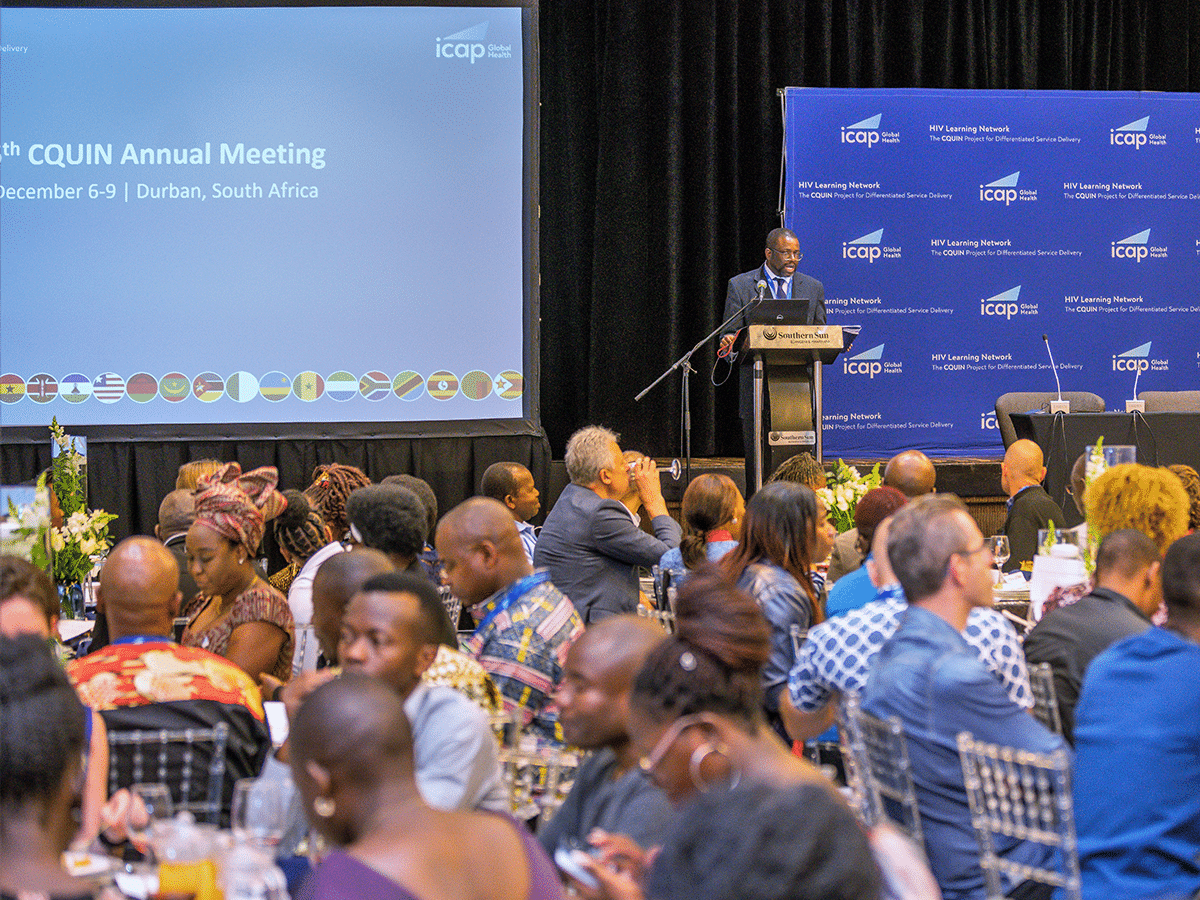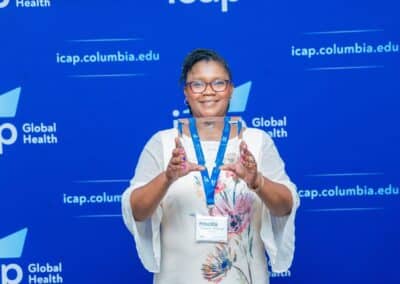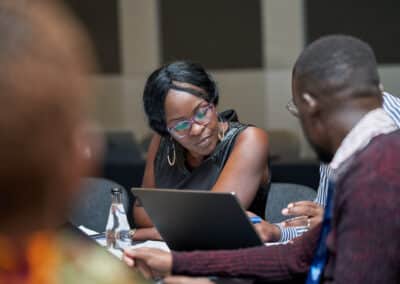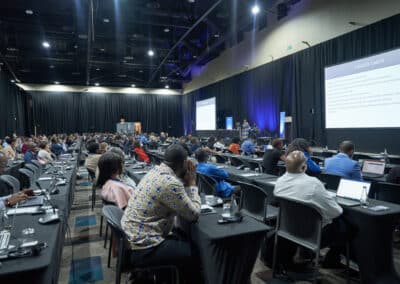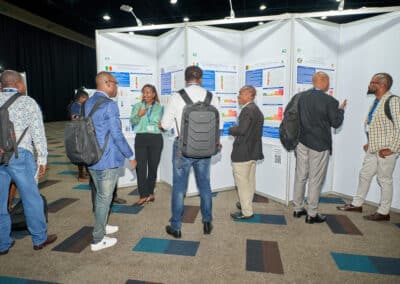For ICAP’s HIV Coverage, Quality, and Impact Network (CQUIN), the annual meeting – the network’s flagship event – is an opportunity for the 22-country network to review progress in scaling up high-quality, differentiated service delivery (DSD) for HIV. This year provided the opportunity to look back over six years of progress and to look forward as the network launches its next phase – CQUIN 2.0.
At CQUIN’s 6th annual meeting, held from December 6-9, 2022, in Durban, South Africa, ICAP convened 260 people, including ministries of health, recipients of care, donors, implementing partners, and international stakeholders from the World Health Organization (WHO), UNAIDS, PEPFAR, CDC, USAID, the International Treatment Preparedness Coalition (ITPC), the International AIDS Society (IAS) the Clinton Health Access Initiative (CHAI), the South-to-South Learning Network, and the Bill and Melinda Gates Foundation.
ICAP also launched CQUIN 2.0, an expanded scope of work that will focus on DSD across the HIV cascade by supporting countries to adopt and implement policies and guidelines for differentiated testing and linkage services in addition to treatment.
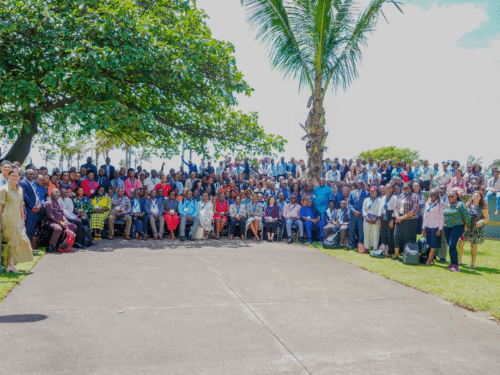
“For the next five years, ICAP’s CQUIN team will continue working with ministries of health to continue scaling up quality DSD models for people established on treatment and for people living with advanced HIV disease,” said Peter Preko, MBChB, CQUIN project director, after the meeting. “With CQUIN 2.0, the network will also support learning on HIV testing services, focused on integrating person-centered HIV testing, linkage, and treatment services with other health services such as non-communicable diseases, tuberculosis treatment, and family planning services, among others,” he added.
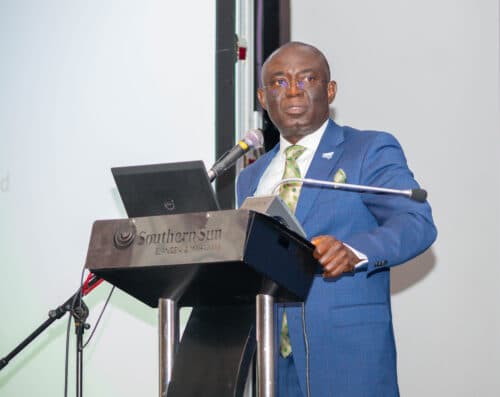
The five-day meeting included plenary presentations and discussions, which allowed network participants to explore innovations, new technologies, case studies, and policies on DSD programs from a global perspective.
Parallel breakout sessions gave countries within the network time to present their national DSD programs, using data from CQUIN’s capability maturity models for treatment, advanced HIV disease, and testing. Other parallel sessions enabled deep dives into topics aligned with CQUIN’s communities of practice, including DSD for key populations, pregnant and breastfeeding women and their children, integrated TB/HIV services, quality management of DSD programs, and more. The meeting also featured poster walks and a Tools Lab session showcasing DSD innovations from network countries.
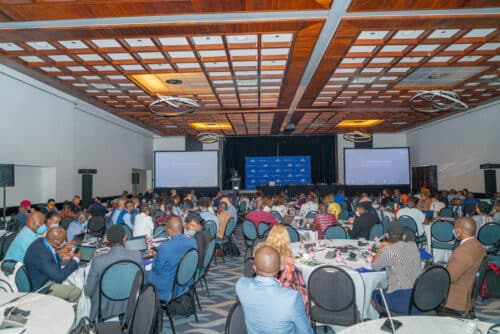
One of the standout topics for participants at the meeting was the deep dive into the new network focus area on differentiated HIV testing and linkage.
“When ICAP launched the CQUIN network in Durban in 2017, DSD was in its infancy,” said Tsitsi Apollo, MD, deputy director for AIDS/STIs at the Zimbabwe Ministry of Health and Child Care. “CQUIN has really helped countries catalyze the implementation of DSD.” Apollo is also a CQUIN advisory board member and has represented her country in the network since the network’s inception. “At this meeting, it was interesting to hear about the updated capability maturity model and the various added domains – that will help countries have a more realistic look at their interventions across the HIV cascade, especially concerning disease comorbidities,” she added. “These programs are interrelated, and with the broadened HIV testing scope, we now have a complete cascade, so that is a plus.”
“As a recipient of care, these meetings have helped us navigate how to work with the ministry of health,” said Robinah Babyire, a participant from Uganda. “My take home from this meeting is prioritizing maternal and child health services. I am glad it was one of the priorities for discussion, and I am looking forward to seeing how the network expands topics around MCH in the coming year,” she said.
“The meeting was very impactful, allowing participants to engage and discuss issues with each other one-on-one. One thing I’m taking home from this meeting is strengthening patient literacy for HIV interventions,” said Lifanda Ebiama, MD, DSD focal at the Cameroon Ministry of Health.
“The aspiration to achieve epidemic control remains critical,” said Peter Ehrenkranz, MD, lead at the Bill and Melinda Gates Foundation, at the meeting’s closing plenary. “Adequately strengthening systems to deliver quality care in a consistent, ongoing fashion is what is essential to sustaining the response.”
Following the annual meeting, countries will finalize country action plans detailing key country priorities on DSD interventions for the upcoming year. The network will also prepare for the differentiated HIV testing services (dHTS) all-network meeting in March 2023, where countries will share results from the new dHTS capability maturity model that assesses the maturity of country testing services.
Meeting slides, updates from countries, photos, and more are available here.


